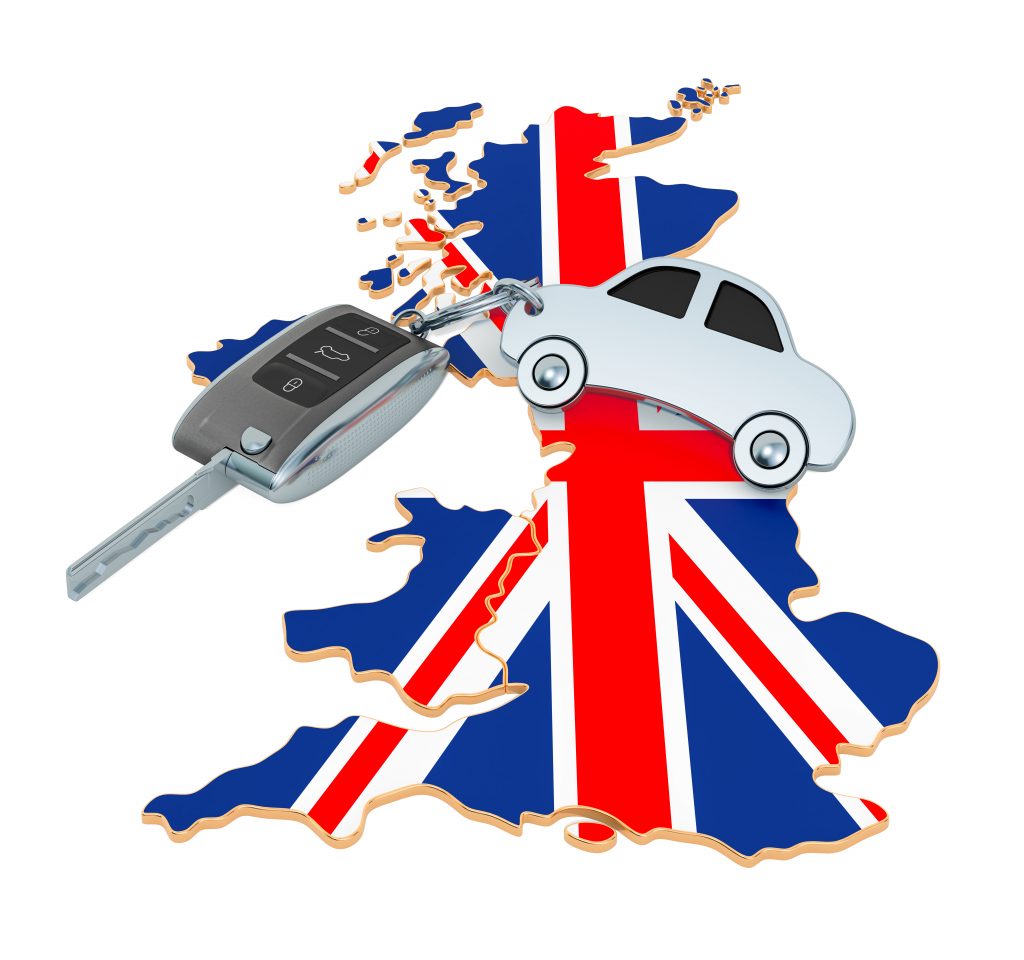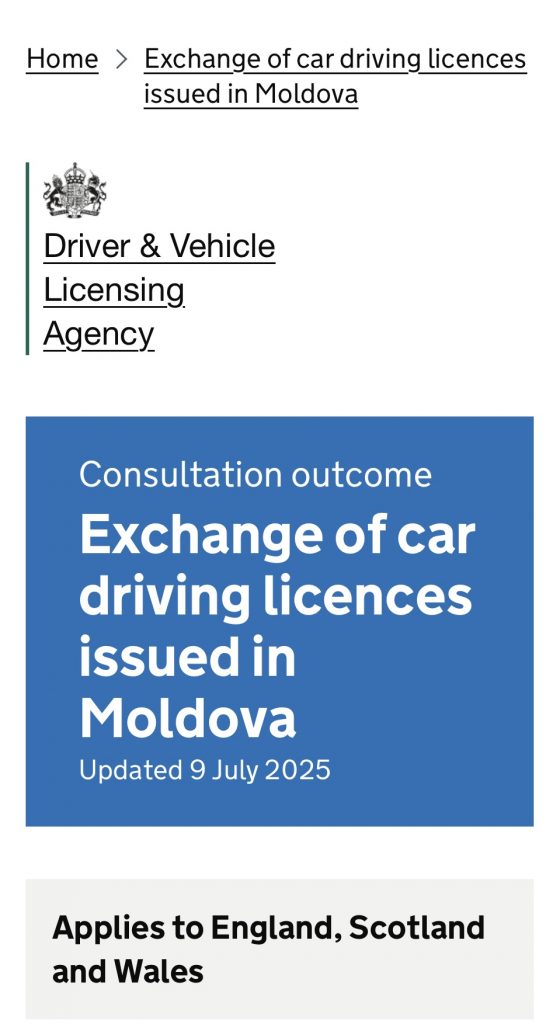
Great news for Moldovan nationals living in the United Kingdom! As of 2025, the UK government is moving forward with legislation that will allow Moldovan car driving licence holders to exchange their licences for a British equivalent, thanks to a successful public consultation led by the Driver and Vehicle Licensing Agency (DVLA). This long-awaited development reflects growing recognition of Moldova’s road safety and licensing standards and opens a new chapter in UK–Moldova relations.
The Background

On 28 February 2025, the DVLA launched a public consultation inviting the public and the driving industry to comment on a proposal to include the Republic of Moldova in the list of designated countries whose driving licences can be exchanged for a British one. The consultation closed on 28 March and received overwhelmingly positive feedback—particularly from Moldovan nationals currently residing in the UK.
This change follows a thorough assessment by the Driver and Vehicle Standards Agency (DVSA), which confirmed that Moldova’s testing and licensing standards meet UK requirements for Category B vehicles (cars).
What Does This Mean for Moldovans in the UK?
For the estimated tens of thousands of Moldovans residing in Great Britain, this change represents more than just a technical update—it’s a major step towards equality, financial relief, and social inclusion.
1. Avoiding Redundancy and Costs
Previously, Moldovan licence holders had to go through the entire UK driving test process after one year of residency. This included applying for a provisional licence, passing the theory test, paying for driving lessons, and eventually taking a practical driving test. The process could easily cost thousands of pounds and take months to complete. Now, eligible Moldovans will simply be able to exchange their valid Moldovan driving licence for a GB one without having to repeat tests they have already passed in their home country.
2. Faster Access to Employment
Many job opportunities in sectors like delivery, social care, construction, and logistics require a valid driving licence. By allowing licence exchange, Moldovan nationals will be able to enter or re-enter the workforce more quickly. For many, this also means being able to support their families and participate more fully in economic life.
3. Improved Social Integration
The ability to drive plays a significant role in one’s ability to participate in community life—whether it’s taking children to school, visiting family and friends, or contributing to volunteer and social activities. With the driving licence exchange, Moldovans will find it easier to build roots in the UK, feel a greater sense of autonomy, and integrate more smoothly into British society.
Economic Benefits for the UK
This policy is not only a win for Moldovans—it also has clear benefits for the UK economy.
1. Tapping into a Skilled Workforce
The UK is currently facing labour shortages in many sectors. By reducing administrative barriers for Moldovan licence holders, employers can access a broader pool of talent, particularly in transport and delivery services, which are heavily reliant on drivers with Category B licences.
2. Boosting Local Economies
With easier access to jobs and mobility, Moldovan residents will be able to contribute more effectively to local economies. Increased spending power translates into more demand for housing, goods, and services—a ripple effect that supports local businesses and communities.
Strengthening Bilateral Relations
This move also symbolizes a deepening of diplomatic and practical ties between the UK and the Republic of Moldova.
The mutual recognition of licences is a tangible example of trust and cooperation between the two nations. It demonstrates that the UK views Moldova as a reliable partner with robust safety and regulatory frameworks. For Moldovan citizens, this recognition can be a source of pride and reassurance that their credentials are respected abroad.
What About UK Nationals in Moldova?
The benefits of mutual recognition are not one-sided. UK nationals who relocate to Moldova for work, travel, or family reasons will also benefit. Under the new agreement, British drivers residing in Moldova will be able to exchange their UK driving licences for Moldovan ones without retesting—saving time, money, and administrative hassle.
This change supports the mobility of British professionals, diplomats, entrepreneurs, and students in Moldova, encouraging stronger people-to-people ties and cultural exchange.
What’s Next?
The DVLA has confirmed that it will amend the law “at the earliest opportunity” to enable this change. Once the legal updates are implemented, eligible residents can apply for an exchange through the DVLA, provided they meet the standard residency and licensing conditions.
It’s worth noting that the exchange will apply only to Category B licences (standard car licences), not for motorcycles, lorries, or buses. The process for exchanging these other categories remains unchanged.
Final Thoughts
This is more than just a change in paperwork—it’s a practical, symbolic, and timely recognition of the value that Moldovan nationals bring to British society. It supports their integration, respects their qualifications, and opens doors for greater economic participation.
For the UK, it’s a smart, future-focused policy that supports workforce needs and strengthens international ties.
In a world where mobility, migration, and mutual respect are becoming increasingly vital, the driving licence exchange between the UK and the Republic of Moldova is a model of cooperation that delivers real benefits to real people.
Let the journey continue—together, and on the road ahead.